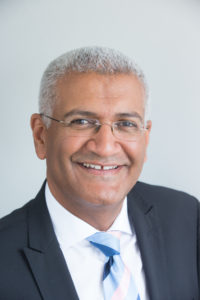Deon Theunis, head of Intermediary Support at Sanlam Individual Life, discusses the challenges faced by the professional market and how this relates to their financial advice.
Tony: Today we are focusing on the professional market. Please give us your feel for the current professional market and the unique challenges that they face.

Deon: If we look at the current professional market, and some of the financial challenges that they face, I think we can put it into two broad categories. The first being your self-employed category and the other your employee category, or your salaried professional.
If one looks at the self-employed professional, it stands to reason they’re self-employed so there is no paid sick leave. In most instances, no work equals no pay. The other element that they definitely need to consider, is the overheads within the business. And I think, especially from a risk perspective, it’s crucial for them to insure their greatest asset, the ability to generate an income.
If one looks at the salaried professional, there is a big reliance on employee benefits. And often these benefits are not understood because, if you ask them whether they are covered for this, or that, the answer is yes, I’m covered. But as we know, the devil is always in the detail. These benefits are often limited in terms of conditions that are covered and the amount of cover that is allowed.
Nowadays salaried professionals are changing jobs all the time, often multiple times, and they don’t necessarily convert the group benefits. This means that they start from scratch at an older age. Furthermore, with benefits differing from company to company they don’t always retain the same level of cover.
Lastly, if you’ve got a prolonged injury or illness, you want to make sure that your income is covered.
Tony: Then obviously, people in this category have bigger responsibilities in the event of an income replacement or other event. In that regard, how does the product offerings and the advice that they need differ? How do you view the product and advice specifically to them, compared to the rest of the market?
Deon: If you look at professional clients, you are wanting a product that’s customised for them, because they’ve got very specific needs. If you look at a self-employed professional in his/her own business, if there are any challenges that result in them being unable to work, as we said, no work equals no pay, you need a solution specifically for that.
I think if one looks at the industry currently, there aren’t any offerings that are exclusive for your professional client. As a result, they end up with hybrid solutions. And these hybrid solutions don’t necessarily do what you wanted them to do for your professional client. So, I think from an advice perspective, a professional client is looking for proper cover with quality benefits and someone that will make sure that their portfolios are tax efficient. They also want to make sure that their portfolio is cost efficient, from an investment perspective.
Tony: With regards to the relationship between the advisor and the client in this market, what sort of qualities do you need as an advisor to be able to deal in this market?
Deon: Firstly, as an advisor, you need to be qualified and professional in your approach, because when you’re dealing with a professional that is qualified, you need to have great communication skills. If you’re dealing, for example, with engineers, they’ve got a lot of questions, and they want to understand all the intricacies.
I’ve heard many stories over the last two years, where clients were unhappy when intermediaries were quiet when things were not going well. It is about understanding the professional clients, understanding what they’re going through, and building that relationship, from a very young age to the time that they retire.
Tony: Now you are in close touch with a lot of these guys, and you see how they operate and what they are busy with. Where do you see the opportunities at this stage for them in the market?
Deon: The key thing for them from an opportunity perspective, is cradle to grave. But there is the longevity of the relationship that one has with a professional because you move with them as their needs change. You are gaining small wins, when you see the sickness benefit paying out because the professionals were off sick, for example, you gain their confidence. I often say a client that experiences a claim with you, will never leave you. Together with that, you also have opportunities for upsell.
When you start off with a student, maybe they need R100,000 cover. Once qualified, they may get married and then buy a house worth R2m or R3m, for example, providing an opportunity to upsell and cross sell from life to savings to retirement to health to short term insurance.
Earning the trust early on through solid advice builds a robust and firm financial planning foundation.
Tony: This creates a portfolio that will organically grow without the need to rush after more clients from month to month. You are actually building the client and being part of that client’s growth journey, which grows your practice.
Deon: Absolutely agree with that. And as I said, it is not about the short term, this is a long-term game. Often as you get older, that is when health deteriorates and that is when you need the cover. You are growing older with that client, and you want to make sure that the necessary customised cover benefits are in place for that particular client.
For me, professionals are disciplined, they are organised and they can do their jobs with absolute precision and confidence. So, I think, let us apply the same principles to their financial planning needs. Let’s get them financially organised so they can successfully navigate whatever life throws at them from a financial planning perspective and ultimately live with absolute confidence.


